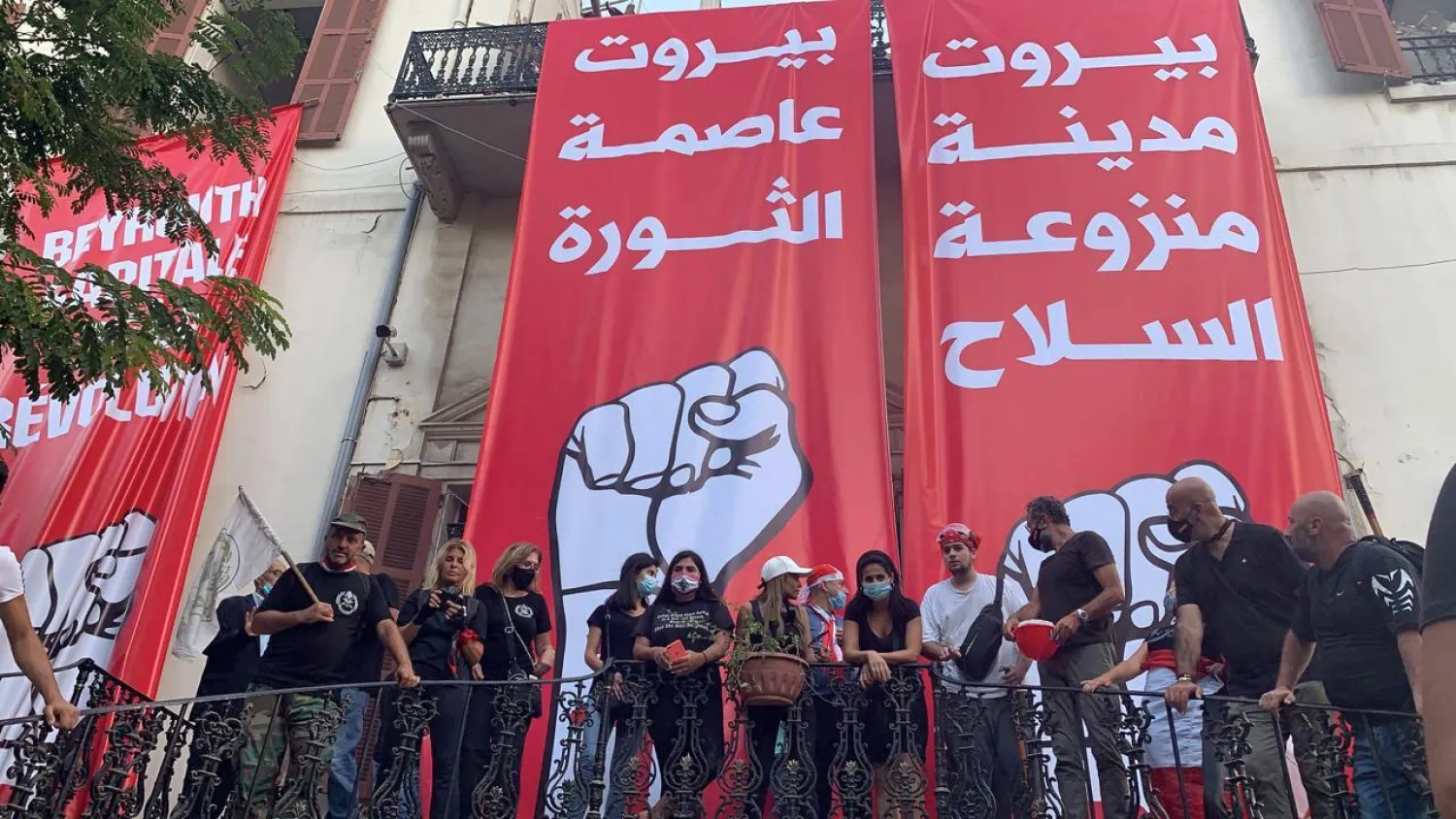A group of Lebanese protesters including retired army officers briefly stormed the Foreign Ministry building in the capital Beirut on Saturday as part of protests following the massive explosion this week.
The protesters said the Ministry would be the headquarters for a “revolution” and called on the current government to resign.
Retired army officer Sami Ramah read a statement on the building's steps after dozens of protesters pushed their way into the building. “This authority must step down,” he said.
Protesters raised flags with the image of a fist that has come to symbolize nationwide anti-government protests.
Some of the nearly 200 protesters entered the building and burned a few documents and pictures of Lebanese President Michel Aoun, representative for many of a political class that has ruled Lebanon for decades and which they say is to blame for its deep political and economic crises.
“We are staying here. We call on the Lebanese people to occupy all the ministries,” a demonstrator said by megaphone.
Rage against the government spiked after the Beirut port explosion Tuesday that killed nearly 160 people and injured 6,000 while leaving much of the coastline mangled.
Protesters gathered in central Beirut clashed with security forces. At least 100 were wounded.
TV footage later showed protesters also breaking into the energy and economy ministries and trashing the offices of the Association of Lebanese Banks in Beirut.
But the Foreign Ministry takeover was cut short when a large army reinforcement muscled in, forcing everyone out.
Public anger had already been rising in Lebanon before the blast because of an unprecedented financial crisis in which the national currency lost 80% of its value. Banks imposed informal capital controls in a controversial effort to control the collapse of the pound and foreign currency flight. The dire conditions were deepened with rising power cuts and concerns that hospitals were facing severe shortages and financial troubles.









